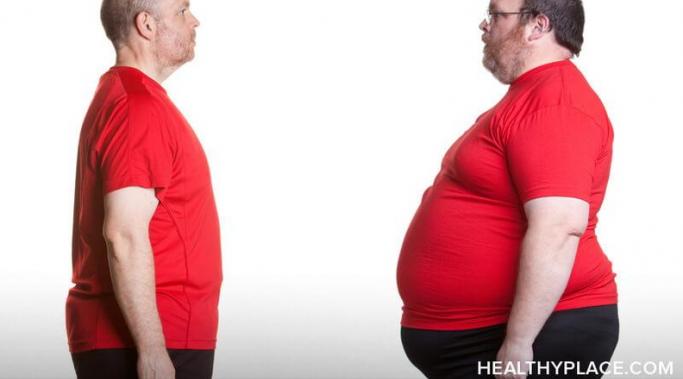One of the symptoms of borderline personality disorder is difficulty controlling impulses. Needless to say, this can sometimes lead to disastrous consequences for actions that make sense only to us. Last night, for example, as I looked out my second-story window, I saw a dumpster full of construction debris and felt an inexplicable urge to jump just to see what would happen.
Thankfully I didn't, but impulsive, potentially self-damaging behavior can be a problem for people with borderline personality disorder.
Coping with BPD
After last week's post, Gus123 had this to say:
if a “regular doc” finds out one has a mental illness diagnosis, they will blame all one’s ills on “imaginary” causes, discounting one’s judgement and intellect, regardless of the true nature of thing.
He hit the nail on the head. A study revealed that almost half of all patients with schizophrenia reported that their family doctors took their physical symptoms less seriously when the doctors were aware of the patient's psychiatric diagnosis. My experience is that they do the same for patients with borderline personality disorder.
There's talk of privatizing the state hospital system. That strikes me as a bad idea. We already have enough mental health services that run with a skeleton staff, minimal oversight, and an emphasis on the bottom line.
Sometimes borderline personality disorder (BPD) can make us do extremely stupid things. A case in point happened after a heated argument with my mother. I stormed out of the house into a below-freezing night, with only one spare set of clothes (khaki pants and a short-sleeved T-shirt), very little money, and no plan. My mother's anger quickly turned into fear and when I returned the next day, I learned she'd considered filing a missing persons report.
One possible symptom of borderline personality disorder (BPD) is substance abuse. When a person has a substance abuse disorder and a psychiatric disorder, they have a dual diagnosis. While help exists for people with mental illness and for people with substance abuse problems, getting help for a dual diagnosis is a lonely, uphill battle. Simply put, neither psychiatric facilities nor rehabilitation facilities have the desire nore ability to treat us.
It was tempting to assume a worst-case scenario, or catastrophize the situation. Would I lose my job as a freelancer? How would I pay for a new computer? What would I do in the meantime? Sound familiar? Many people with BPD can see things as a lot worse than they actually are, which can trigger other psychiatric symptoms.
Yesterday, I sought medical treatment after suffering some severe dizziness. After some tests, the doctor told me that the dizzy spells and difficulty walking were a result of a medication-related drop in blood pressure. The problem--the psychiatric medication responsible allows me to sleep without nightmares. It was my decision--psych symptoms or physical problem.
"The Fat and Happy Paradox?" I asked.
"Exactly," he replied.
I know of a lawsuit I would have paid a month's wages to watch Judge Judy handle. When I was a child, a student brought either cocaine or heroin to her elite private school. She was caught and expelled. However, the school had no written rules, which meant there was no formal drug policy. She sued, claiming she didn't know she couldn't bring drugs.
To my knowledge, borderline personality disorder (BPD) was not a factor. However, this frivolous lawsuit is a perfect example of an attempt to avoid personal responsibility--one of the complications of BPD.
there's a big difference between remorse, or regret of wrongdoing, and false guilt, which is a flaming arrow in the hands of a master manipulator.
Gardening requires hope--hope for the right weather, hope for good seed, hope for recovery from any unexpected events. In the same way, recovery from borderline personality disorder (BPD) is an exercise in hope.









